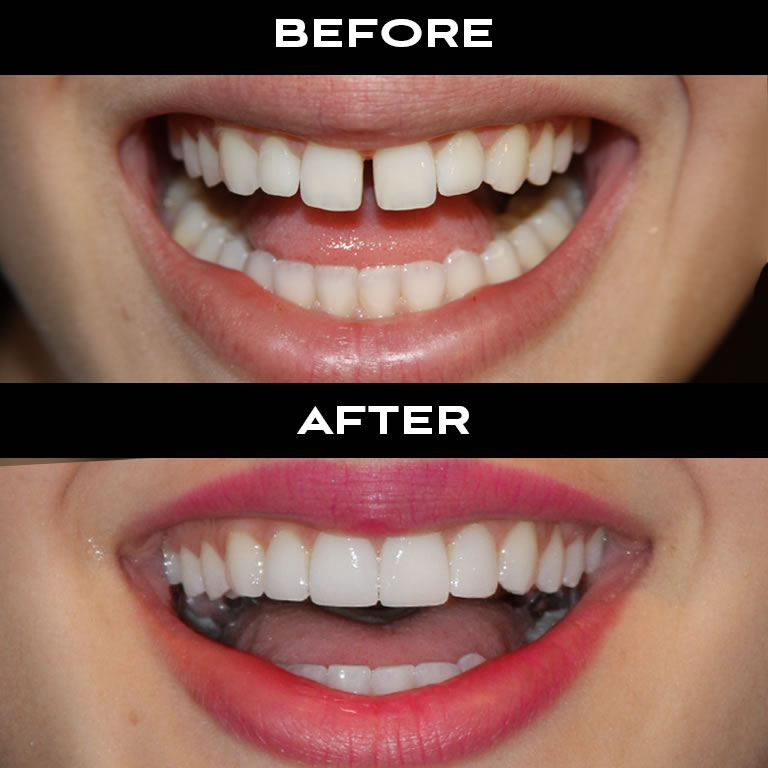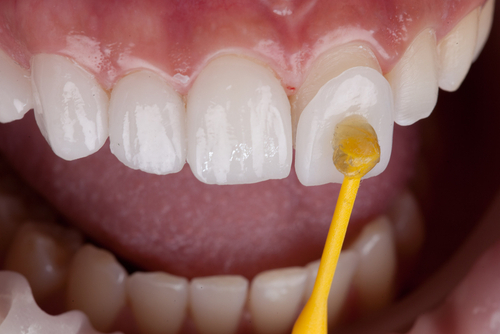Cleaning and Consultation
We all know that good oral hygiene is important to maintain a beautiful smile, but did you know that it’s also essential to your overall health? It’s true, poor oral hygiene can lead to a variety of dental and medical problems such as gum disease, infection, heart disease, stroke, and even diabetes.
That’s why dentists recommend that teeth be cleaned professionally twice a year. Teeth cleaning are the removal of dental plaque and tartar in order to prevent cavities, gingivitis and gum disease. Our regular check-ups involve more than meticulous cleaning.
To schedule an appointment or a consultation, please contact us at 718-544-0977 today. During your visit, Dr. Yakubov utilizes advanced technology as well as extensive experience to diagnose any underlying conditions that need attention.
Dental cleaning, also known as prophylaxis, is a procedure to remove tartar (mineralized plaque) that can form even with regular brushing and flossing, especially in hard-to-reach areas during regular brushing. This is often done by a dental hygienist. Professional cleaning involves scaling and polishing the teeth and removing tartar if there is too much tartar. This means using different instruments or devices to loosen the teeth and remove debris.

Cosmetic Dentistry

Cosmetic dentistry can be used to address a wide range of cosmetic concerns, including stained, chipped, misshapen, and missing teeth. The goal of cosmetic dentistry is to create a healthy, beautiful, and functional smile that enhances a person’s overall appearance and confidence.
Innovations in dental technology have made a trip to the dentist’s an entirely new experience for millions of Americans – thanks to a relatively new field called cosmetic dentistry.
The main goal of traditional dentistry is to keep your teeth healthy and free of disease and decay; cosmetic dentistry takes oral hygiene to a whole new level, with a concentration on enhancing the overall look of your teeth. With cosmetic dentistry, even getting a cavity filled can be an opportunity to improve your smile.
The smile is our window to the world, and it’s the first thing that makes an impression on people we meet. So it’s no wonder that more and more people are turning to cosmetic dentistry for corrective procedures and aesthetic enhancement.
So whether you want to fix a chipped tooth or get a complete smile makeover, we can help you achieve the smile you’ve always wanted.
General Dentistry
At Briarwood Dental Care, we have made it our chief concern to maintain and improve your dental health with the finest care possible.
General dentistry is the branch of dentistry that focuses on the prevention, diagnosis, and treatment of a wide range of oral health conditions. It encompasses a variety of procedures and treatments designed to maintain the overall health and function of the teeth, gums, and jaw.
Dr. Yakubov will make your dental hygiene her top priority, as she does with all of our patients. That’s why general dentistry services at Briarwood Dental Care embody maintenance of healthy teeth and gums, diagnosis and prevention to ensure healthy smiles for life. A visit to our office isn’t just about checking for cavities – there have been incredible advancements in the field of dentistry, and we have responded by expanding our range of custom dental care services to suit your needs.
Our commitment is to providing the highest quality of dental care for our patients, and we want to do the same for you.

Bridges
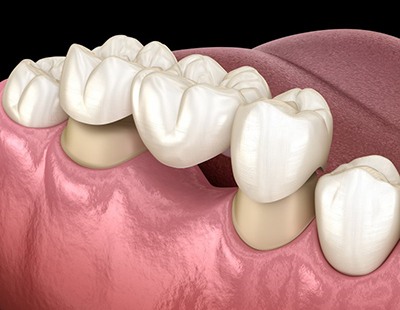
A dental bridge is a type of prosthetic device used to replace missing teeth. It consists of one or more artificial teeth, called pontics, that are supported by a framework, called abutments, which are attached to the remaining natural teeth or dental implants. The pontics are typically made of materials such as porcelain, gold, or a combination of both, while the abutments may be made of metal or ceramic.
Dental bridges literally bridge the gap created by one or more missing teeth.
A bridge is made up of two crowns for the teeth on either side of the gap — these two anchoring teeth are called abutment teeth — and a false tooth/teeth in between. These false teeth are called pontics and can be made from gold, alloys, porcelain, or a combination of these materials. Dental bridges are supported by natural teeth or implants.
Bridges can:
• Restore your smile
• Restore the ability to properly chew and speak
• Maintain the shape of your face
• Distribute the forces in your bite properly by replacing missing teeth
• Prevent remaining teeth from drifting out of position
Crowns
A dental crown is a type of prosthetic device used to restore the shape, size, strength, and appearance of a damaged or decayed tooth. A dental crown is a type of cap that is placed over the visible portion of a tooth, effectively covering and protecting it. Crowns can also be used to improve the appearance of a misshapen or discolored tooth.
Our smile is one of the first things people notice. But when teeth fracture, are discolored, or your smile is not as attractive, crowns may be recommended.
Depending on the type of treatment you have received for your dental problem, it might be necessary to:
• Have your tooth restored to its original size and shape
• Supply additional physical support for the treated tooth
• Get a complete “makeover” on the affected tooth
Crowns can be made out of numerous materials, which are usually fabricated using out-of-mouth method. Crowns are frequently used to improve strength or appearance of teeth.
Dr. Yakubov prepares Non-metal Zirconium crowns that because of the strong ceramic material used it will not corrode. Also the normal too hot/cold sensations you can feel with other crowns does not normally occur.
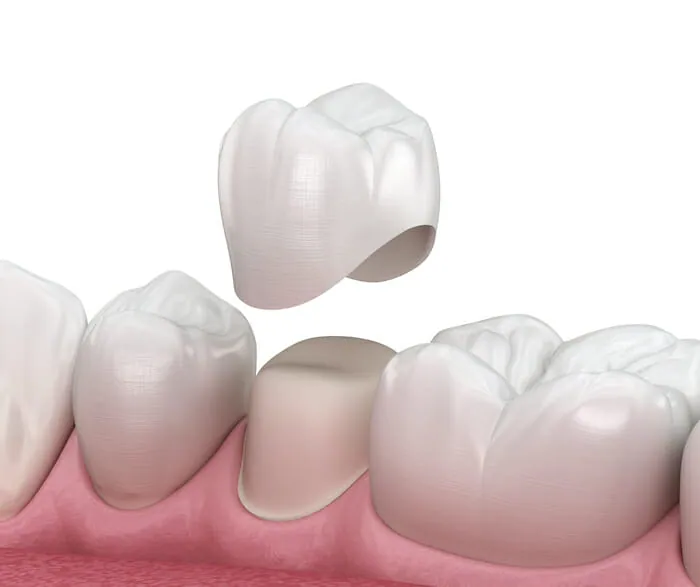
Composite Fillings
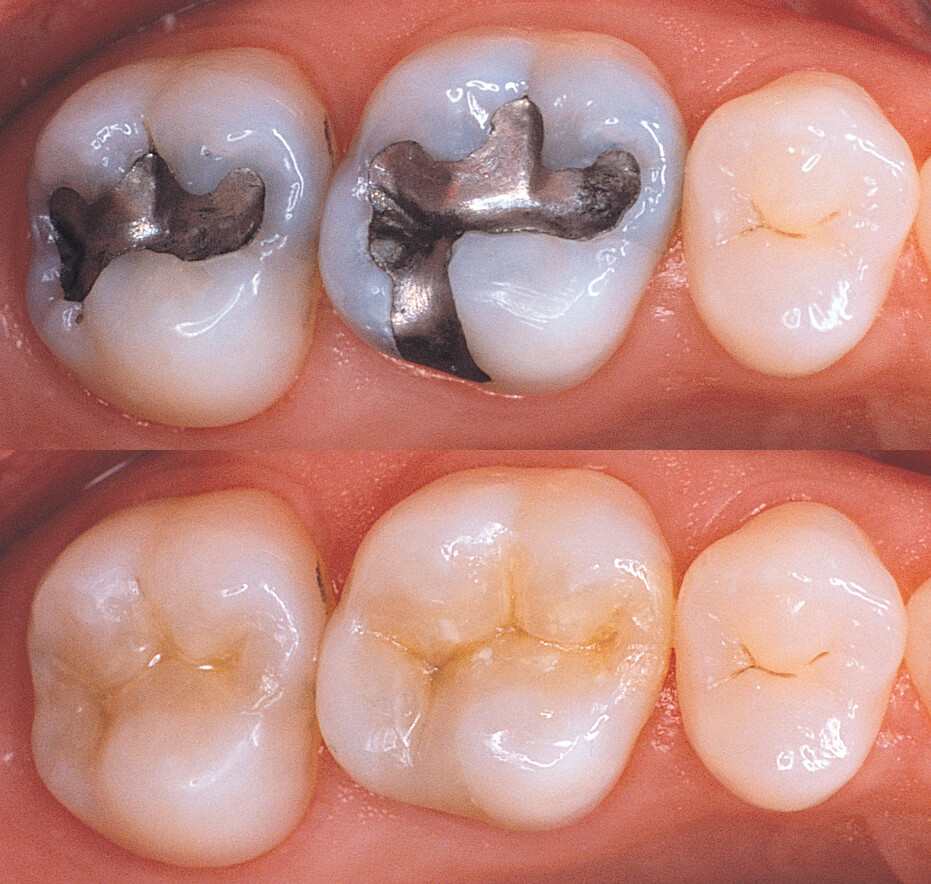
For over 150 years, cavities were filled with a mixture of metals, including silver and mercury. It was perfectly normal to see dark grey areas in someone’s mouth when they laughed.
But today, you can get your cavities, as well as any other smaller hollow areas in your teeth, filled with composite fillings. Composite fillings are made from resins that are matched to your tooth’s color – so they become invisible when applied.
Composite fillings also provide an excellent seal on the affected area, so that tooth decay can be prevented.
The factors that go into our decision to use composite fillings include:
• The size of the area that needs to be filled
• The location of the affected area in the mouth (i.e., a tooth that is heavily relied on for chewing)
• Allergies the patient might have
• The preference of the patient regarding the use of metals in the mouth
• Whether it is necessary cosmetically to have a tooth-colored filling
Dental X-Rays
Dental x-rays work by creating an image of the denser parts of your body, such as teeth and bone, revealing dental problems that may not be apparent to the naked eye. At Briarwood Dental Care, we use Digital Radiography technology to detect various disorders, such as cavities, infections, misalignment and decay, in their early stages. Instead of using the traditional Photographic film, this time efficient technology allows the patient to have less exposure to radiation.
Taking a dental x-ray takes just a few minutes and doesn’t hurt. Minimal amounts of radiation are emitted in the process, as x-ray machines are strictly regulated by the FDA.
We use several types of x-rays in diagnosing dental problems, including:
• Bitewing X-rays: Check for decay between teeth and jaw misalignment
• Periapical X-rays: Used to find problems in the jaw
• Occlusal X-rays: Used to examine the roof or floor of the mouth
Depending on your age and level of dental health, the FDA recommends getting a dental x-ray between every 6 months and 3 years.
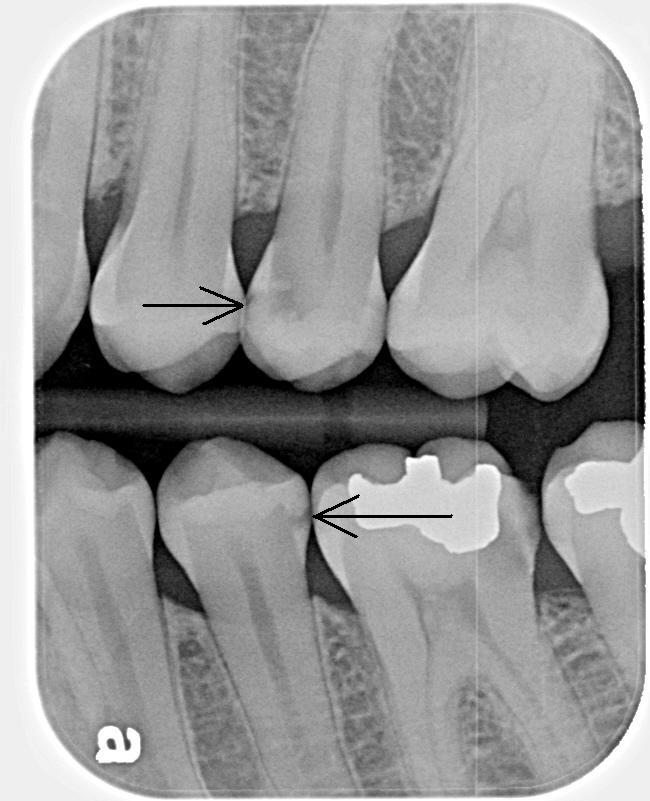
Neuromuscular Dentistry and TMJ Syndrome
Dr. Yakubov is specialized in treatment of TMJ Syndrome and Facial Pain. She uses the multiple treatment modalities i.e. Neuromuscular reprogramming exercises, orthotics “TENS Therapy” (Transcutaneous Electro Neural Stimulation) to help relax your muscles, allowing them to be in their most comfortable position, this way treating TMJ (Temporo-Mandibular Joint) disorders.
the dentist to develop a method of treatment appropriate for the patient’s needs. Everybody has some degree of misalignment in their jaw and this misalignment creates tension and prevents the muscles in the upper body from working at their full potential. This strains the muscles and increases the production of lactic acid, as if we were constantly exercising them. This ultimately develops your constant headaches. When your facial muscles are in their best position, your muscles relax, therefore eliminating the headaches.
The following symptoms are commonly seen in patients suffering from TMJ disorder:
• Frequent headaches
• Regular use of over the counter medication to treat your headache
• Teeth grinding and/or-clenching
• Back pain
• Facial muscle spasm
• Jaw joint pain
• Jaw clicking and/or popping
You don’t have to suffer from headaches and take pain relievers every day.
Call us and discover how Neuromuscular Dentistry could rid you of the nagging headaches.
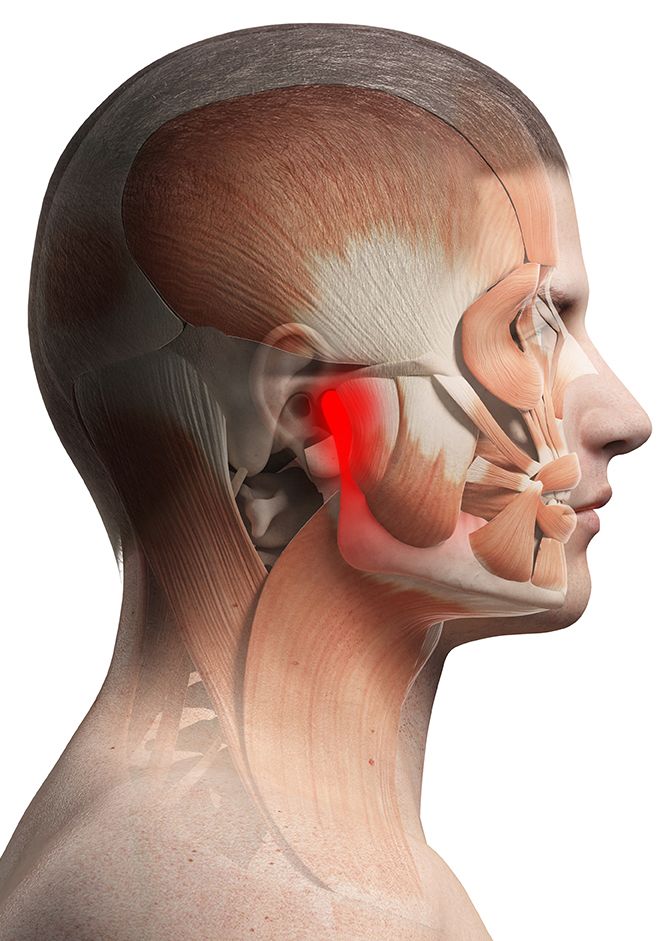
Implants
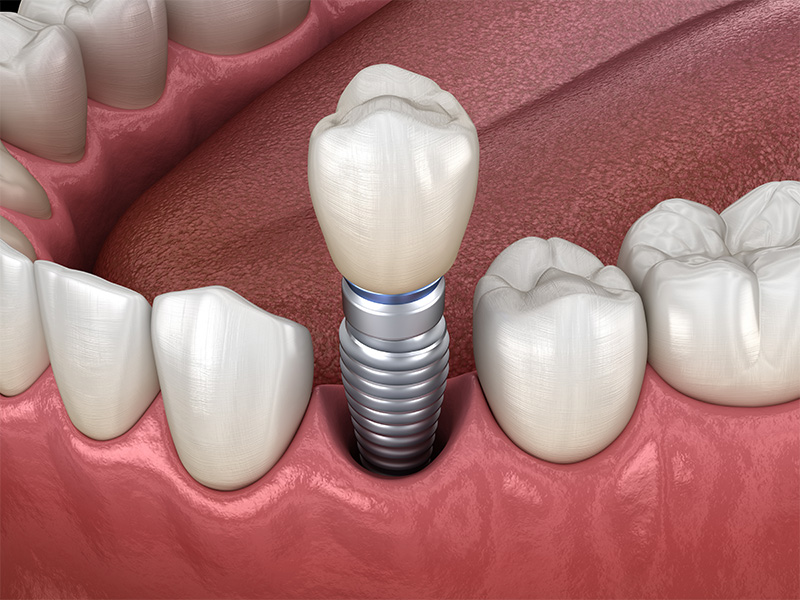
If you have lost or missing teeth you may wish to consider a dental implant from Briarwood Dental Care, P.C..
Briarwood Dental Care, P.C. is a full service dentist specializing in dental implants. Whether your missing tooth is the result of periodontitis, tooth decay or an injury, Dr. Yakubov, can restore your smile with a beautiful new dental implant that looks and functions just like a real tooth.
Significantly stronger than bridges or dentures, a dental implant offers a single and permanent solution to a lost tooth. The implant is integrated into your jaw with a small titanium screw and over the course of several months naturally bonds with your mouth. This procedure is relatively simple and is effective in almost all cases, so there’s no need to put off restoring that great smile.
As with all our dental services, you’ll be treated with the nurturing care and professionalism that embodies Briarwood Dental Care, P.C.’s practice. We’ll make sure that you’re kept comfortable and informed throughout the implant process and will always be available to address any questions or concerns.
Pediatric Dentistry
Dental appointments for children are important to evaluate tooth and gum health. Dr. Yakubov does not only diagnose and carefully treat her young patients, but she also spends a great deal of time teaching children how to maintain healthy teeth and gums for life.
Many children learn their best oral hygiene habits from our dentist, including:
• Brushing
• Flossing
• Feeling comfortable in a dentist’s office
• How to avoid tooth decay
• Nutritional counseling that equips them with the right tools to maintain healthy teeth for life.
• Facts and information in a way that is understandable for children
From infancy through the teenage years dentistry focuses not only on proper oral hygiene habits, but on dental issues specific to children.
Tooth decay is a chronic disease that is the most common among children – five times more common than asthma.
Your child’s first birthday is usually the first time they should be brought in to see Dr. Yakubov. We look forward to seeing you!
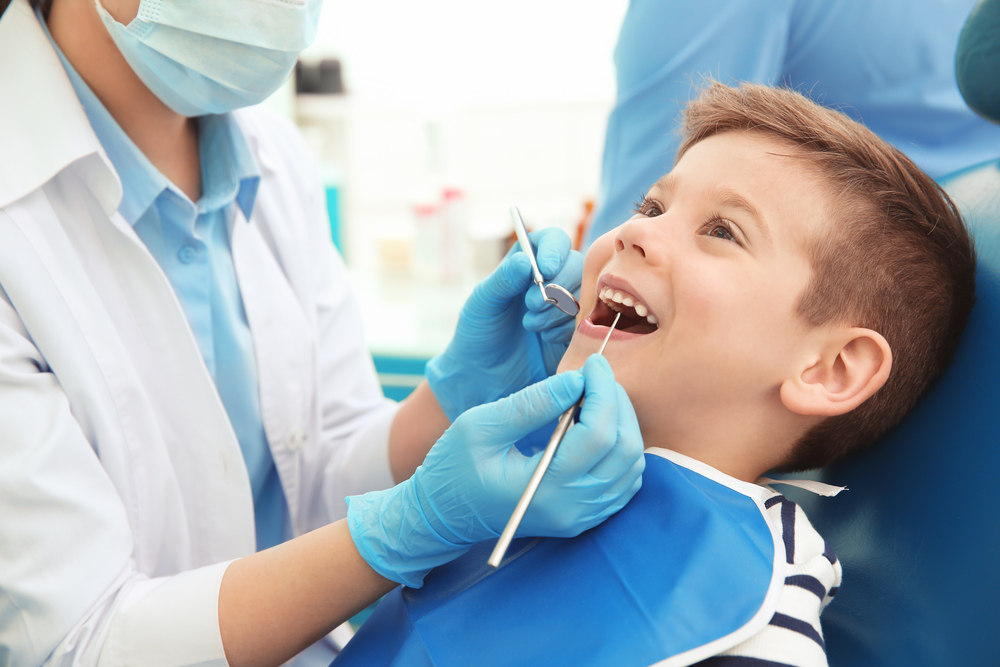
Root Canals
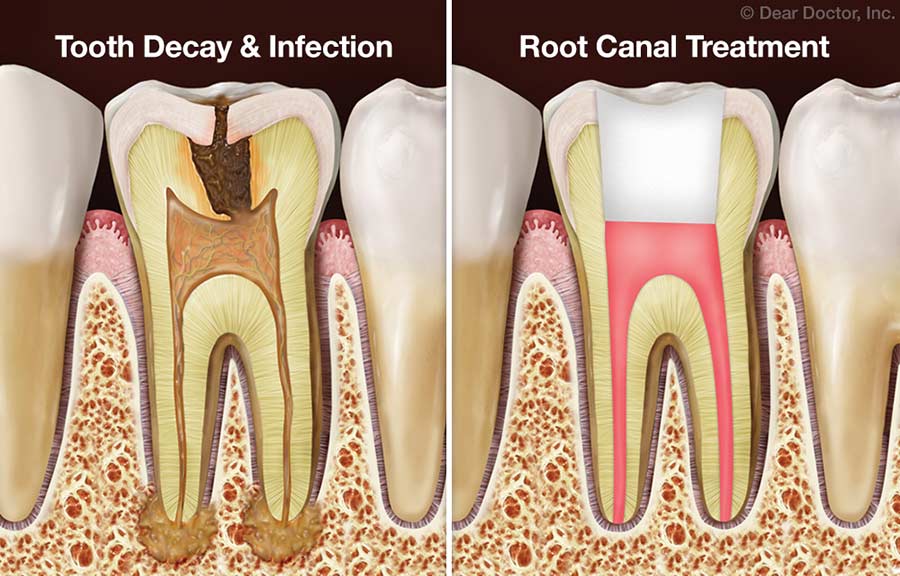
Generally caused by tooth decay or shock to pulp or nerve tissue damage can be an excruciating experience. Symptoms including pain while chewing, thermal sensitivity and swelling. If left untreated, pulp damage can lead to abscesses, or pus-filled infections, and eventually to tooth loss and surrounding structures.
Endodontics, or root canal therapy, is the branch of dentistry that deals with treating dental pulp damage and is the best way to directly address the pain and save the tooth. During a root canal procedure, infected nerve tissue is cleaned out and replaced with filler to prevent further infection. With proper anesthesia, root canal therapy can be a pain free process.
At Briarwood Dental Care, we have specialized training in root canal therapy and take every measure to ensure our patients’ maximum comfort throughout the procedure. If you are experiencing tooth pain, sensitivity or swelling, it is important to act fast, not only to relieve your pain, but also to save the tooth from complete decay.
Teeth Whitening
Teeth whitening involves the use of special gels and lights to remove stubborn stains and discoloration from the teeth. Many people associate professional teeth whitening with movie stars and brides – but in fact, it is the most popular procedure in cosmetic dentistry.
Stained or discolored teeth are very common among adults of all ages, and come from a variety of sources, such as:
• Coffee
• Red wine
• Soda
• Tea
• Tobacco
• Some medications
Those of us with stained teeth tend to brush more vigorously; this can remove the enamel from your teeth, causing further discoloration and serious dental problems. Others use over-the-counter whitening kits, but they don’t have the prescription strength and lasting effects of a professional teeth-whitening procedure.
The key to a long lasting, bright, white smile is to have them whitened by a cosmetic dentist before discoloration becomes too severe. Whether you choose an in-office or at-home procedure, you can be sure to receive solid advice, professional care, and a smile that will knock their socks off!
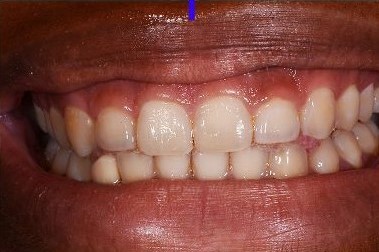
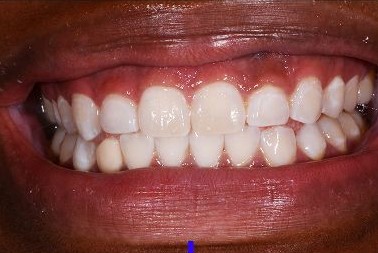
Veneers
What are Veneers
One of the most popular and effective developments in cosmetic dentistry, veneers are thin, custom made casings that cover the front side of your teeth. Veneers are used to correct uneven teeth, worn enamel, discoloration, chipped teeth and irregular spacing, and can last over 20 years. In some cases, veneers can serve a restorative purpose and can protect a damaged tooth from further harm.
What Does the Procedure Involve?
After a thorough examination of your teeth, which may include X-rays and taking impressions of your teeth, your dentist will remove a thin layer of enamel from your teeth. Then he or she will create an impression and send it off to a laboratory to create the veneer. While the mold is being created, your dentist may provide you with temporary veneers. Finally, the veneers size and color are given one last adjustment before they are cemented to your tooth on your second visit.
What Are the Advantages of Veneers?
Veneers can give your teeth a more natural, aesthetically pleasing appearance and are stain resistant and soft on gums. In some cases, veneers can serve a restorative purpose and can protect a damaged tooth from further harm.
Veneers that do not require your teeth to be shaved and can even be placed over crown or bridgework. A custom-made set of Lumineers can be installed in 2-3 visits and is proven to last over 20 years.
As this procedure is elective and primarily cosmetic, most dental insurers will not cover veneers.
